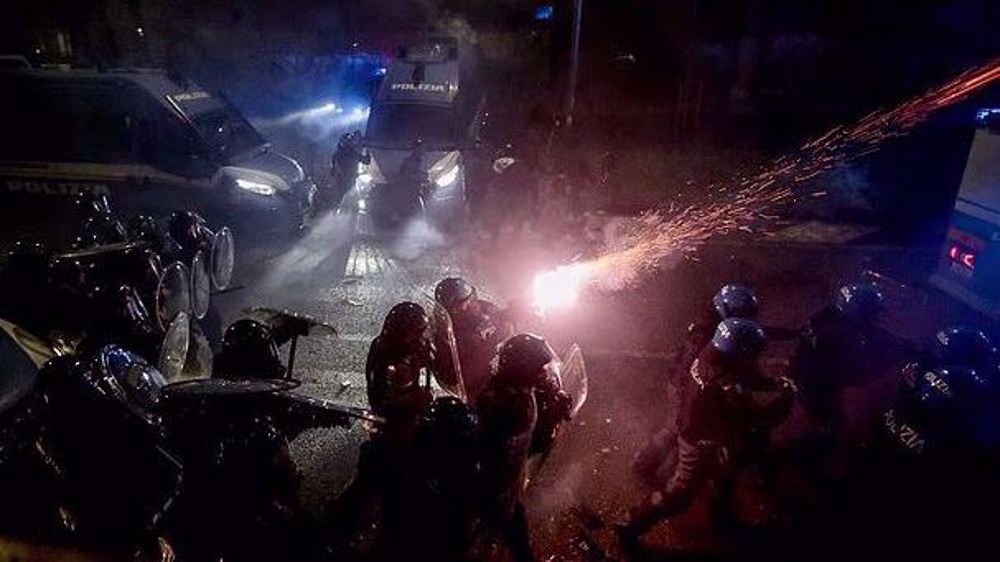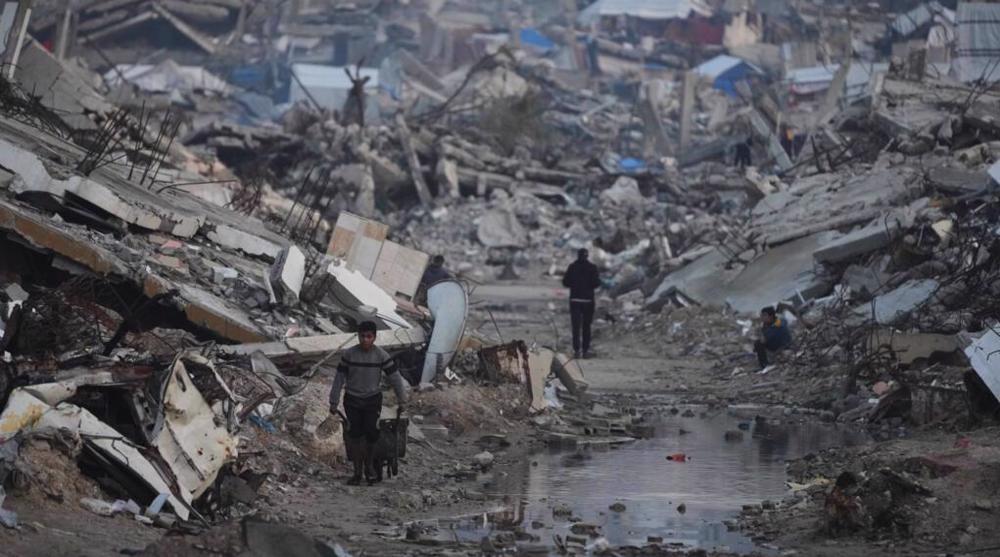Armenian opposition blocks government buildings
Opposition demonstrators blockaded government buildings in Armenia's capital Tuesday as parliament was set to confirm the pro-Moscow former president as the real power in the country.
Parliament was expected to elect ex-president Serzh Sarkisian as prime minister under a new parliamentary system of government that will allow the Kremlin-backed 63-year-old to maintain his chokehold on the ex-Soviet country.
Several thousand demonstrators pressed ahead with protests that began Friday, marching through the center of the capital Yerevan and staging sit-in protests outside government buildings.
Protesters blockaded the entrances to about a dozen government buildings, including those housing the foreign ministry and the central bank, and a bigger protest was planned for Tuesday evening.
But the ruling Republican Party went ahead with the vote despite the opposition rallies that saw several dozen protesters hurt in clashes with police in Yerevan on Monday.
"I proclaim today the start of a peaceful velvet revolution in Armenia," opposition leader Nikol Pashinyan told a rally in Yerevan, calling on supporters to "paralyze the work of all government agencies."
Rallies were also held in the country's second- and third-largest cities of Gyumri and Vanadzor.
On Monday, police used stun grenades as protesters sought to break through a barbed wire cordon in the center of Yerevan in an effort to get to the parliament building.

Authorities said 46 people including six police and opposition leader Pashinian sought medical help on Monday.
The spokesman for the ruling party, Eduard Sharmazanov, has dismissed the protests as "the opposition's artificial and fake agenda."
Serzh Sarkisian, a shrewd former military officer, has been in charge of the landlocked South Caucasus nation of 2.9 million since winning a presidential vote in 2008.
He stepped down last week after serving two consecutive presidential terms. He also held the office of prime minister in 2007-2008.
The country's new figurehead president, Armen Sarkisian, was sworn in last week but his powers will be weaker under a new system of government.
Even though the two men share the same surname, they are not related.
Opposition politicians say the shift to a parliamentary republic with a powerful prime minister has been designed to increase Serzh Sarkisian's grip on power in the impoverished Moscow-allied country.
"Sarkisian wants to perpetuate his rule," the leader of the opposition Heritage party, Raffi Hovannisyan, told AFP.
The constitutional amendments were passed after a referendum in December 2015, with some 63 percent of the voters backing the changes.
After the plebiscite thousands of opposition supporters rallied in protest against alleged mass violations at polling stations.
Council of Europe observers have said the referendum was marred by allegations of large-scale vote buying and multiple voting, among other irregularities.
After Sarkisian was first elected in 2008, 10 people died in bloody clashes between police and supporters of the defeated opposition candidate.
He won a second presidential term in 2013.
(Source: AFP)
UK arrests Press TV contributor amid crackdown on pro-Palestine activism
VIDEO | Axis of Resistance stands as multinational front for justice
Swiss academics call for end to research treaty with Israel over Gaza genocide
VIDEO | Israeli regime harasses, tortures Gazans returning through Rafah crossing
Israel faces existential threat of internal collapse before centenary, general says
Police fire tear gas as protests erupt against ICE and Israel at Milan Winter Olympics
UK PM’s chief of staff resigns over appointment of Epstein associate as US envoy
Iran leads Islamic world in electric vehicle motor technology














 This makes it easy to access the Press TV website
This makes it easy to access the Press TV website